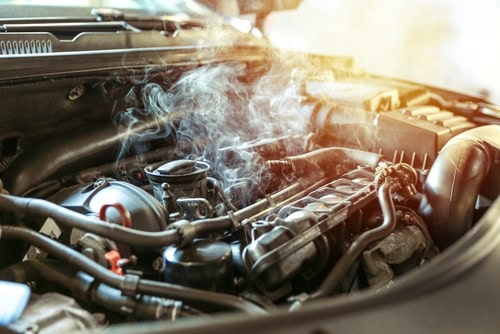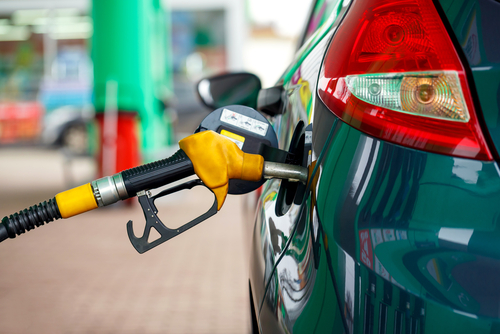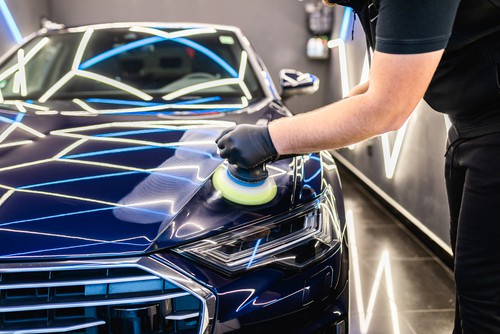
Maximizing Fuel Efficiency: Tips and Tricks
March 2, 2024What to Do If Your Car Overheats?

What to Do If Your Car Overheats? Car overheating is a prevalent issue that drivers may encounter, especially in demanding climates or during extensive use.
Understanding how to respond effectively can prevent significant damage to your vehicle and ensure your safety.
This guide outlines the essential steps to take when faced with an overheating engine, highlighting the importance of prompt and informed action.
Table of Contents
Recognizing the Signs of Overheating
Dashboard Warning Lights and Gauges
The first sign of an overheating car is often the temperature gauge or warning light on the dashboard indicating high engine temperature.
Steam or Smoke Coming from Under the Hood
Visible steam or smoke emanating from under the hood is a clear indicator that your car’s engine may be overheating.
Unusual Smells
An overheating engine can produce sweet (coolant) or burning smells, signaling a possible leak or engine damage.
Engine Performance Issues
Loss of power, stalling, or unusual engine noises can also suggest that the engine is overheating and struggling to operate efficiently.
Immediate Steps to Take If Your Car Overheats

- Pull Over Safely: Immediately find a safe location to stop your vehicle to prevent further damage to the engine and ensure your safety.
- Turn Off the Engine: Shutting down the engine halts the production of further heat and is crucial in preventing engine damage.
- Wait for the Engine to Cool: Before attempting any inspection or repair, wait for the engine to cool down to avoid burns and injuries.
- Check and Refill Coolant If Necessary: Once the engine has cooled, safely check the coolant level and, if low, carefully top it up to the correct level.
- Restarting the Engine: When the engine has cooled and you’ve addressed any immediate issues, cautiously restart the engine. Monitor the temperature gauge closely as you proceed to a service location.
Do Not Do This If Your Car Overheats
- Never Open the Radiator Cap While the Engine Is Hot
Opening the cap can cause hot steam and coolant to erupt, leading to severe burns.
- Avoid Pouring Cold Water Over the Engine
Sudden temperature changes can crack the engine block or cause other damage due to thermal shock.
- Do Not Ignore the Problem or Attempt a Long Drive
Continuing to drive an overheating car can result in significant engine damage and potentially dangerous situations.
Aftercare: Following an Overheating Incident

After an overheating event, it’s critical to have your car inspected by a professional mechanic to identify and address the root cause.
Common issues leading to overheating include coolant leaks, failed water pumps, or blocked radiators. Addressing these issues promptly can prevent recurrence.
Regular vehicle maintenance is essential in preventing overheating, including coolant changes and inspections of hoses, belts, and thermostats.
Preventive Measures
Regular Maintenance Tips
Scheduled coolant changes, checking hoses and belts for wear, and thermostat inspections can significantly reduce the risk of overheating.
The Importance of Keeping an Eye on the Temperature Gauge
Monitoring your car’s temperature gauge can provide early warnings of potential overheating, allowing for preemptive action.
Recognizing the Impact of Driving Habits on Engine Temperature
Aggressive driving, towing heavy loads, and other demanding driving habits can increase engine temperature. Modifying these habits can help maintain a cooler engine.
Understanding Your Car’s Cooling System

The cooling system includes the radiator, thermostat, water pump, and coolant, each playing a vital role in dissipating heat from the engine.
The system circulates coolant through the engine to absorb heat, which is then expelled through the radiator, effectively managing the engine temperature.
Special Considerations for Driving in Singapore
Singapore’s hot and humid climate, combined with dense traffic, can challenge your car’s cooling system, necessitating diligent maintenance and monitoring.
Ensuring adequate coolant levels, regular system checks, and understanding your vehicle’s specific cooling needs are crucial in such environments.
FAQ
1. How often should I check my car’s coolant level?
It’s advisable to check your car’s coolant level at least once a month and before embarking on any long trips.
Keeping an eye on the coolant level is crucial for preventing overheating and ensuring your engine runs smoothly. Always check the coolant when the engine is cool, typically several hours after the engine has been turned off.
2. Can a malfunctioning air conditioner cause my car to overheat?
Yes, a malfunctioning air conditioner can contribute to car overheating. If your air conditioning system is working harder than usual, it can put additional strain on the engine, leading to increased temperatures.
If you notice your car tends to overheat more with the AC on, it’s worth having both your cooling system and AC checked by a professional.
3. How does engine overheating affect my car’s overall performance?
Engine overheating can significantly impact your car’s performance and longevity.
Over time, it can lead to engine components warping, seals degrading, and in severe cases, complete engine failure.
Addressing overheating promptly can help maintain your car’s performance and avoid costly repairs.
4. What should I do if my car overheats in the middle of traffic?
If your car begins to overheat in traffic, turn off your air conditioner and turn on the heater. This can help draw some of the heat away from the engine.
If it’s safe to do so, try to pull over to a secure location and turn off the engine to let it cool down.
Never try to open the hood or the radiator cap immediately, as the system will be under high pressure and could cause burns.
5. Is it necessary to use the coolant brand recommended by my car manufacturer?
While it’s often best to use the coolant recommended by your car’s manufacturer, the most important aspect is to use the correct type of coolant.
There are different types of coolant, and using the wrong one can cause more harm than good.
If you’re unable to find the brand recommended by your manufacturer, ensure you’re using the right type of coolant for your car, which is sometimes specified by color. Always consult your vehicle’s manual or a professional if in doubt.
What to Do If Your Car Overheats? – Conclusion

Recognizing the signs of an overheating car, understanding the immediate steps to take, and adhering to preventive maintenance can significantly mitigate the risks and damages associated with engine overheating.
Proactive vehicle care, especially in challenging climates like Singapore’s, is paramount in ensuring your car’s performance, reliability, and longevity!
Are you looking for professional and reliable car repair workshops in Singapore? Contact us today!



